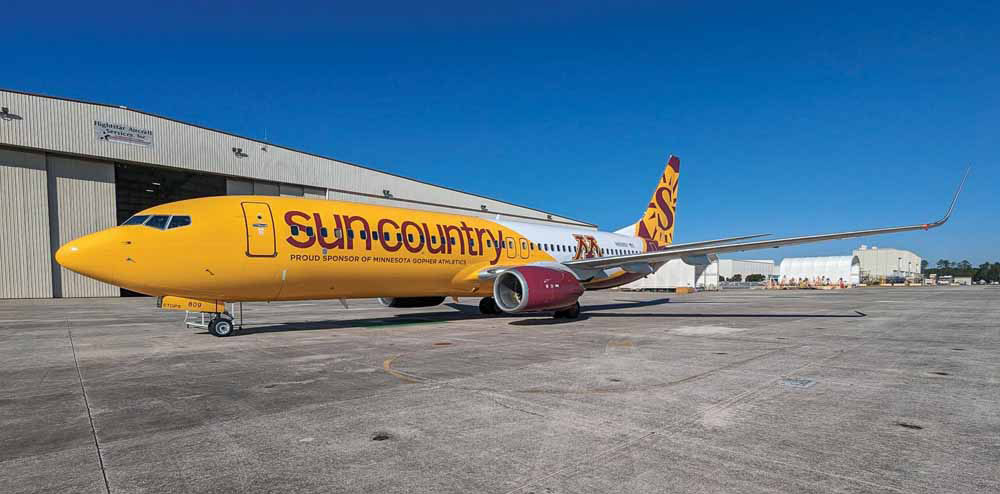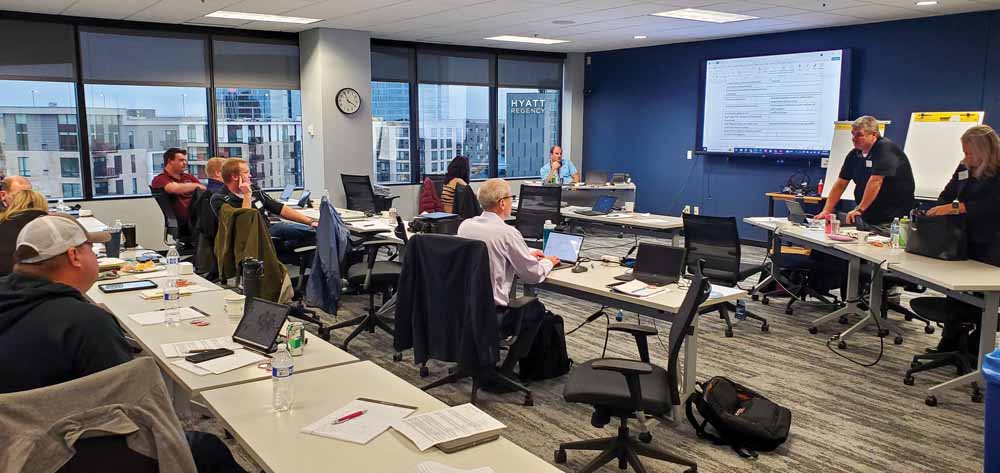Sun Country

Sun Country rolled out its first-ever custom livery in 2024. This B-737NG will fly charters for University of Minnesota sports teams. Photo: Sun Country LinkedIn
At A Glance
Airline Founded: 1982
Pilots joined ALPA: 1996
Number of pilots: 680
Domiciles: Minneapolis-St. Paul, Minn.
Headquarters: Minneapolis, Minn.
Operations: Scheduled passenger service, charter operations, and Amazon freight service.
Fleet: 50 B-737NGs and 20 B-737BCF freighters
For the pilots of Sun Country Airlines, 2025 will be a year of new things: a new Master Executive Council (MEC), a new focus on flying cargo, and a new round of contract bargaining.
For most of its 42-year history, the carrier was known for flying Minnesotans to warm-weather vacation destinations. But five years ago, the formerly all-passenger airline began flying cargo for Amazon Air. Its current fleet of 12 B-737 freighters will almost double, with an additional eight freighters beginning to arrive this year.
The additional freighters, combined with passenger charter operations, will reduce the airline’s scheduled-service business to only 30 percent of its total flying.
The MEC is currently preparing to open contract negotiations, with bargaining scheduled to begin in June. A key part of that preparation is to inform Sun Country’s newer pilots about the Railway Labor Act and how the negotiations process works. A majority of pilots on the seniority list joined the carrier after the last round of bargaining was completed in 2021, and they haven’t gone through a contract cycle before.


